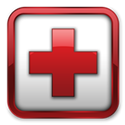 Not all disaster situations will require that you leave home. That means you could enjoy the support of disaster response services and agencies in your area. However, towns and cities across the globe differ in how they handle supporting their citizenry in an emergency. So you will have to turn to your local government for a list of applicable emergency organizations.
Not all disaster situations will require that you leave home. That means you could enjoy the support of disaster response services and agencies in your area. However, towns and cities across the globe differ in how they handle supporting their citizenry in an emergency. So you will have to turn to your local government for a list of applicable emergency organizations.
Many telephone directories list emergency services in the front of the book. A trip to your local library can also get that information for you. Remember that NOAA weather radios provide frequently updated information on any weather-related emergency in your area. Ham radios are an excellent source for contacting the disaster response agencies in your area, since many local and federal emergency responders and government-sponsored disaster food suppliers operate on ham radio frequencies.
In all likelihood, there are 3 main emergency service functions provided in your area right now:
- Police – responding to crimes against property and persons.
- Fire department – handling fires and other rescue operations, some level of emergency first aid as well.
- Emergency medical providers – ambulances and EMS personnel for medical emergencies.
You should familiarize yourself with the emergency and non-emergency numbers and contact options for the police, fire and medical emergency responders in your area. Store these numbers for easy access on your cell phone. Purchase a landline as a cell phone backup for communications as well. Those 3 are common emergency response units.
National Emergency Response in the United States
In the event of a large scale catastrophe, you may need to contact your local or regional branch of a federal agency or entity. In the United States, the Federal Emergency Management Agency (FEMA) handles national disasters or emergencies that affect a region so severely that local emergency response is not adequate. The agency’s main purpose is …
“… to coordinate the response to a disaster that has occurred in the United States and that overwhelms the resources of local and state authorities. The governor of the state in which the disaster occurs must declare a state of emergency and formally request from the president that FEMA and the federal government respond to the disaster.“
UK Emergency Response & Recovery
In the United Kingdom, Emergency Response and Recovery is the multi-agency body provided to help UK citizens recover from civil emergencies.
UK Emergency Response & Recovery Official Website
Emergency Response Agencies Located Worldwide
In the United States, UK and around the world, the and provide all types of disaster relief services. The information for your local branches of these agencies can be found online through a quick Google search. Your local government no doubt has several emergency social services to provide help after a natural or man-made disaster strikes. And don’t forget, before you head out for some hiking or camping, secure the phone numbers and Internet contact information of the Forestry Service or park rangers in the area. It won’t hurt for you to also save some contact information for the CDC (Center for Disease Control). Not only do they offer valid emergency preparedness information, they also often provide instructions during emergency situations that are relevant to their services, such as an epidemic or pandemic scenario. For your convenience, we have provided the official website for the Red Cross, Salvation Army and CDC for those who would like to do some research on available resources.
Use this site to find information on your local Red Cross Chapter
Salvation Army Official Website
What To Do With This Information
Just like any other aspect of disaster survival, knowing your emergency responders and the services they provide can be crucial to your survival. Take some time to locate the information now, before you need to make that life-saving call. As a dedicated prepper you should always hope for the best, but prepare for the worst.
That means making multiple copies of your disaster support services and agencies and their contact information, and keeping that information readily available at home, at work and in your vehicle. This information should also be stored in your wallet or purse for quick reference. We also encourage you to download any apps offered by these services onto your smartphone and tablet. Downloaded mobile applications can be accessed even when cellular services are down and can be a valuable source of help and information. The CDC, Red Cross, Salvation Army and FEMA all have apps in iTunes and the Google Play Store, and many times your local response services will also offer similar resources.
You are not signed in. Sign in to post comments.